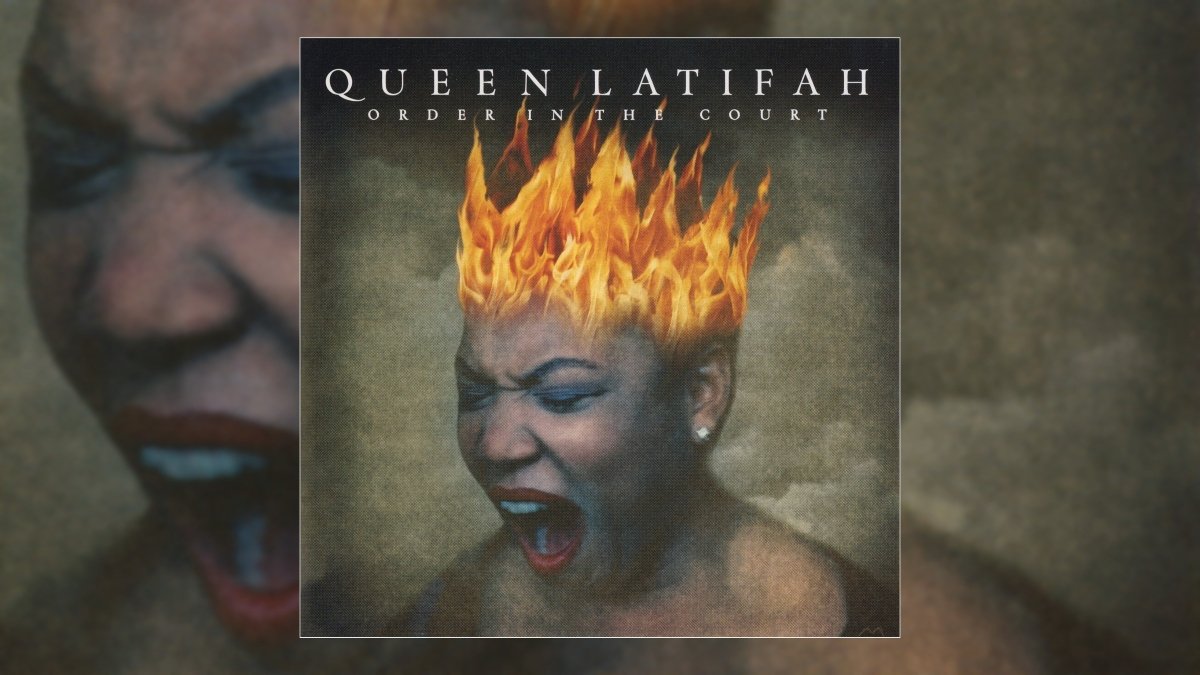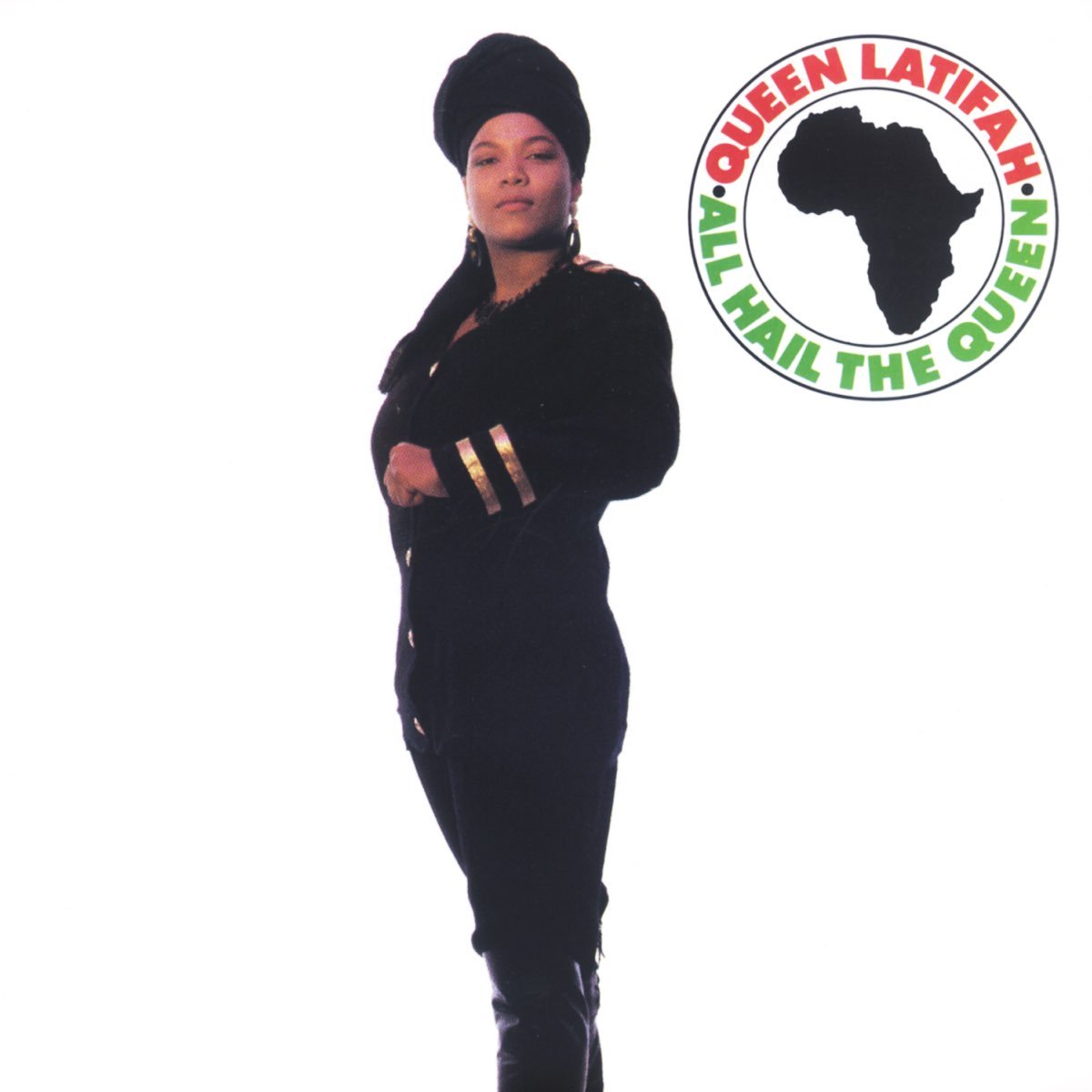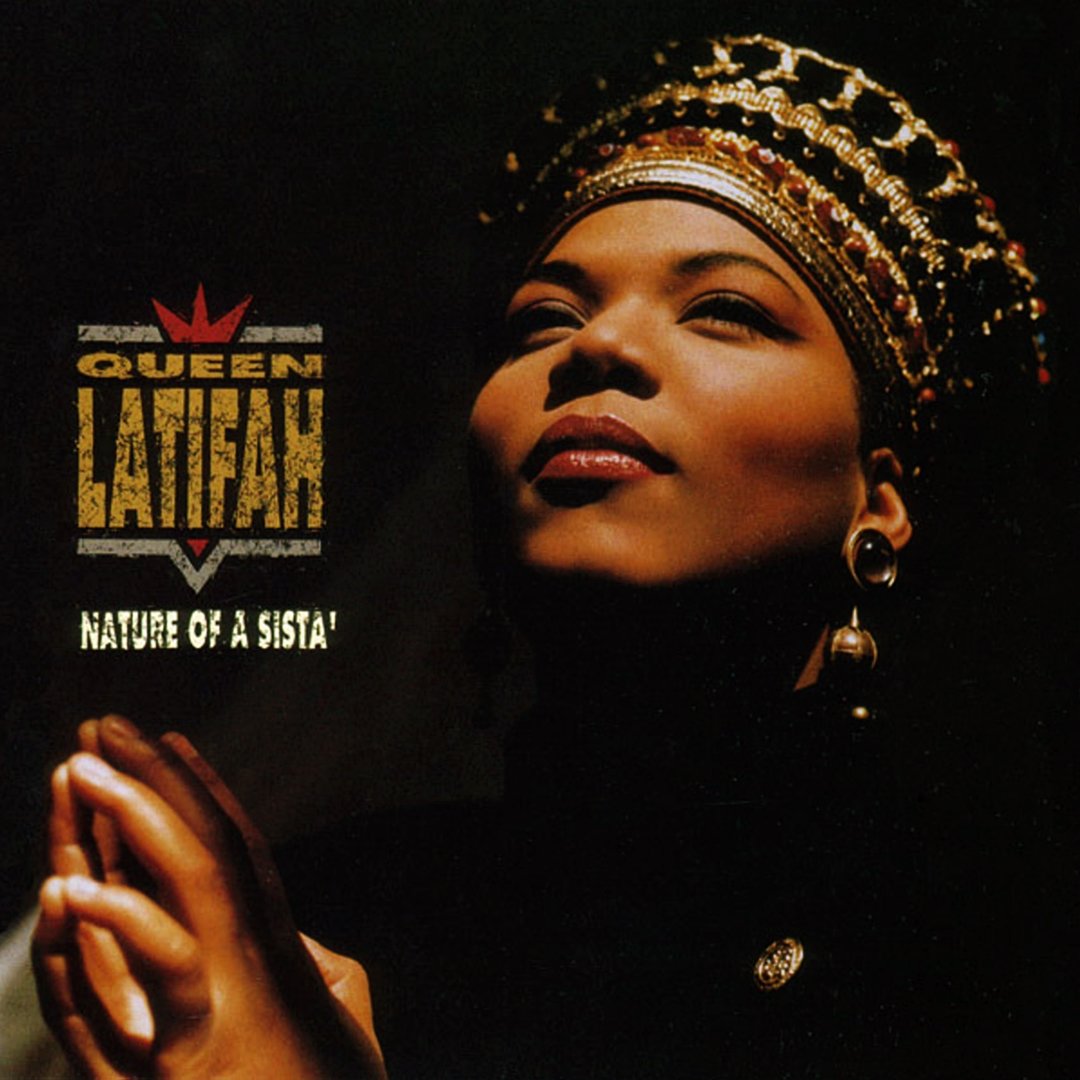Happy 25th Anniversary to Queen Latifah’s fourth studio album Order in the Court, originally released June 16, 1998.
Before the opinions start flying, let’s establish one thing: Dana Elaine Owens did not need this job. Being exceptional on the mic introduced Queen Latifah to the world, but in the five years since her masterwork Black Reign (1993), the multihyphenate’s celebrity was no longer music-dependent. Her unflinching portrayal of Sapphic robber baroness Cleo Sims ignited Set It Off (1996). Meanwhile, she was imprinting the culture-at-large as Khadijah James in the hit Fox series Living Single. By the time its last episode aired January 1, 1998, Latifah was free to do anything she wanted. Returning to her first love of music just happened to strike her fancy.
However, the landscape that greeted her that summer was not the same one she left. Commercial attention for women in hip-hop was focused on Missy Elliott, Lauryn Hill, and the surface-level sex of Lil’ Kim and Foxy Brown. Even with her brand strong and talent undeniable, no one knew what to expect from Queen Latifah. How she might slot into a market saturated with the sounds of Timbaland and Rodney Jerkins was in question. Latifah answered with her fourth studio release Order in the Court.
“It’s almost like me calling order to hip-hop,” she remarked in a July 1998 issue of Jet Magazine. “It needs some kind of balance.” Perhaps the elder stateswoman was preparing to issue a decree like Public Enemy’s “Fight the Power” or a “U.N.I.T.Y.” for the new millennium. “It needs the positive along with the rest of the stuff. It needs a different point of view, different point of creativity that makes my stuff a little different from everybody else’s.”
Maybe “different” is where things began to wobble. The Queen spoke confidently, but lacked a specific vision for reentering the fray. Ready or not, Order in the Court found the rap veteran raising her scepter while the wants of hip-hop and the music industry at large shifted rapidly beneath her feet.
The set’s opener became its first single. “Bananas (Who Ya Gonna Call?)” and its industrial strength pomposity declared her majesty’s reemergence. Subverting the trope of a female singer cosigning men’s gritty verses, Flavor Unit alumnus Apache serves as his boss-lady’s baritone hook assassin. With bombs dropping and zaps sizzling, this clamorous Marcus DL track matches the surrealist, near-dystopian Matt Mahurin cover art like nothing else on the album.
Watch the Official Videos:
Counterbalancing its flipside was the too-cool “Paper.” Produced by Fugees third man Pras Michel and Jerry Duplessis, this frosty satire turns Marvin Gaye’s “I Heard It Through The Grapevine” into a pointed missive to haters. It also tacitly addressed Cleo-borne rumors about her sexuality (“Everybody talking, see? / Spreading them lies about my friends and me / They say that we’re tighter than friends supposed to get / That’s because I haven’t let you chill with me yet”).
“Paper” was part of Latifah priming us for her transition from authoritative rhymester to smooth songstress. She delivered full R&B treatments on 1991’s Nature of a Sista’ (“Love Again,” “Give Me Your Love”) and Black Reign as well (“Weekend Love”). In progression, “Paper” is as natural a meld of hip-hop and soul as The Notorious B.I.G.’s Delfonics redux “Playa Hater” or Ol’ Dirty Bastard’s zany take on Rick James’ “Cold Blooded.” And one single from the previous summer predicted it.
Forged in the shell of Alicia Myers’ post-disco “I Want to Thank You,” Latifah’s “It’s Alright” made the R&B Top 40 with no reliance on rapping. Originally from the Nothing to Lose soundtrack (1997), Order in the Court presents a subtle remix of this bassy throwback swapping out co-writer Faith Evans’ prominent vocals for those of similarly adept Lil’ Mo. Although these radio hopefuls shined, the parent project had cracks in its façade.
Latifah had been deeply affected by the murders of 2Pac and B.I.G. and the deep cleft they drove between east and west coast rap. Moreover, grief persisted from the death of her brother Lancelot Owens. “Nothing seemed to matter anymore,” she lamented in her memoir Put on Your Crown (2010). “[Flavor Unit co-founder Shakim Compere] begged me to get back into the studio. We had another album due, but I wasn’t interested.” As stated, she really didn’t need this job. Unfortunately, the disc too often sounds like it.
Dinged on a technicality, the 15-producer pileup resulted in disparate songs that sequenced choppily. For instance, “No/Yes” appears too early, dulling momentum before it can build up. The same happens with the heartfelt tribute “What Ya Gonna Do.” As one of three the Queen self-produced with help from Divine Styler and Kendu Isaacs, it would have flowed better as a hidden bonus if it remained at all. The other two (“Parlay” and “Brownsville”), fare much better with their rowdy, Set It Off-inspired, lady-thugging, gutter mixtape energy.
Despite missteps, there are unqualified wins that historically go unnoticed on Order in the Court. The first is the Rufus & Chaka Khan-sampling “Court is in Session” from Jay-Z beatmaker Big Jaz. Its clever jabs like “You ain’t a rapper / You just play one on TV, radio and CD” mix classic sparring with a party vibe. “Turn You On” succeeds in the same vein with Latifah channeling Cherrelle to shrug at an overconfident suitor (“I took you out / I was only tryin’ to be nice / Let you touch it once or twice”). This style of rapping and singing is her sweet spot.
Enjoying this article? Click/tap on the album covers to explore more about Queen Latifah:
She easily rides the Diamond D-constructed glide-and-bounce of “I Don’t Know” featuring Dru Hill’s SisQó. Inexplicably buried near the CD’s end, his adlibs are bellissimo and garnish Latifah’s performance perfectly. Keeping with her positive focus, “Black on Black Love” sketches out an Afro-utopia to negate the bleak realism of Black Reign’s “Just Another Day.” Any of these contenders could have circulated on BET and MTV, but Motown Records pulled their support early. The writing was on the wall.
The CEO shift from Andre Harrell to Kedar Massenberg signaled an incoming neo-soul wave at Motown that would prioritize Erykah Badu, Chico Debarge, Donnie, and India.Arie. Following Order’s mixed reception and modest sales, Latifah and Motown eventually parted ways.
Her peers suffered similar fates in 1998. MC Lyte enlisted hitmakers The Neptunes and Missy Elliott to great effect on Seven & Seven, but EastWest lost interest in the legacy rapstress. Her labelmate Yo-Yo’s final release Ebony was shelved before a single copy could be sold. It was as though major labels decided to uninvest from these matriarchs all at once.
“Order in the Court didn’t turn out like I’d hoped,” Latifah’s memoir reveals. “To be honest, it was pretty mediocre. The record label was going through a whole regime change, and the album didn’t get the kind of support it could have. And musically, I was trying to do something a little different that didn’t quite work. But I was okay with that, because I know I gave it everything I had, and the experience taught me things that made me better.”
Beneath Latifah’s irrepressible delivery, Order in the Court had blockbuster aspirations akin to Will Smith’s Big Willie Style (1997) even if it wasn’t as committed to pop crossover. To date, it’s Latifah’s last rap-dominant album (with its 1:3 ratio of rhyming, 2009’s urban AC hybrid Persona shouldn’t count). Apart from cameos here and there, her highness has unofficially retired from rap. She may have forecasted this exit on the mournful, sax-soaked closer “Life,” with lines like, “Sometimes I switch to jazz stations / To try to help my patience / Tested with stress from this crazy life I live / Nevertheless keep my attitude positive / My prerogative is to always have / A pot to piss in / If I get shitted on by the biz.”
In light of this, her jazz reinvention The Dana Owens Album (2004) seems more a survival adaptation than whimsical dabbling. And how does it benefit her to grasp at attention from a dwindling industry when she has an Academy Award nomination, beauty endorsements, and A-lister invitations to consider? Few rappers get summoned to duet with Tony Bennett.
Still, Order in the Court doesn’t feel like an appropriate chapter to bow out on. My prediction is that after sharpening her tools on business, fashion, and entertainment, the commanding lyricist will ascend to power again. And when she does, she’ll be judge, jury, and most certainly executioner.
Listen:



